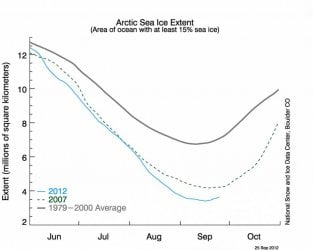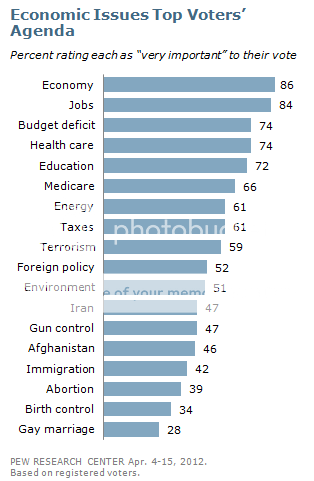RollingThunder
Gold Member
- Mar 22, 2010
- 4,818
- 522
- 155
And of course, there have never been any "big storms" in the Arctic before now, right Screwball. 'Cause if there had been, they would have produced the same ice loss as we're seeing now, if your 'theory' is correct.A big storm broke up the ice into chunks, leaving much more surface area for the seawater to melt it.So the massive record-setting Arctic Sea Ice melt didn't really mean anything, because there was a storm! One storm melted all the ice! None of it would have happened without the storm, even if the melt was on a record setting pace even before the storm!
That concludes today's lesson in "idiot denialist logic". Denialists seem to spend their days thinking up endless new ways to prove how 'effin stupid they are.
"The storm definitely seems to have played a role in this year's unusually large retreat of the ice", Parkinson (a climate scientist at NASA Goddard Space Flight Center) said. "But that exact same storm, had it occurred decades ago when the ice was thicker and more extensive, likely wouldn't have had as prominent an impact, because the ice wasn't as vulnerable then as it is now."
Your post concludes today's example of "dumbshit nonsense from clueless denier cult retards". Thanks for contributing such an excellent example, Screwball.This concludes today's lesson in "the dynamics of melting ice for dumbshits".










